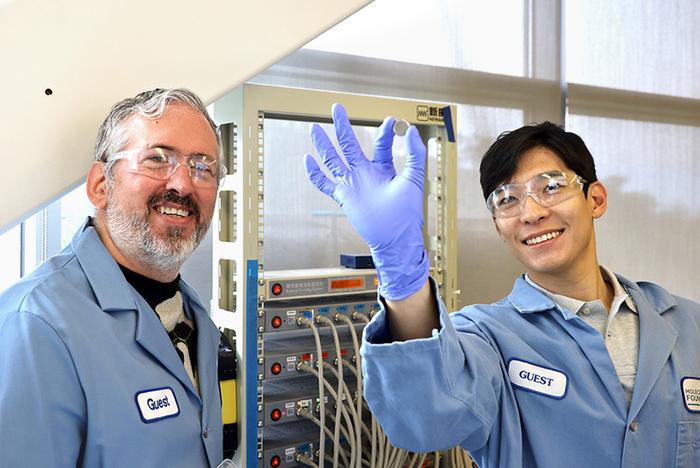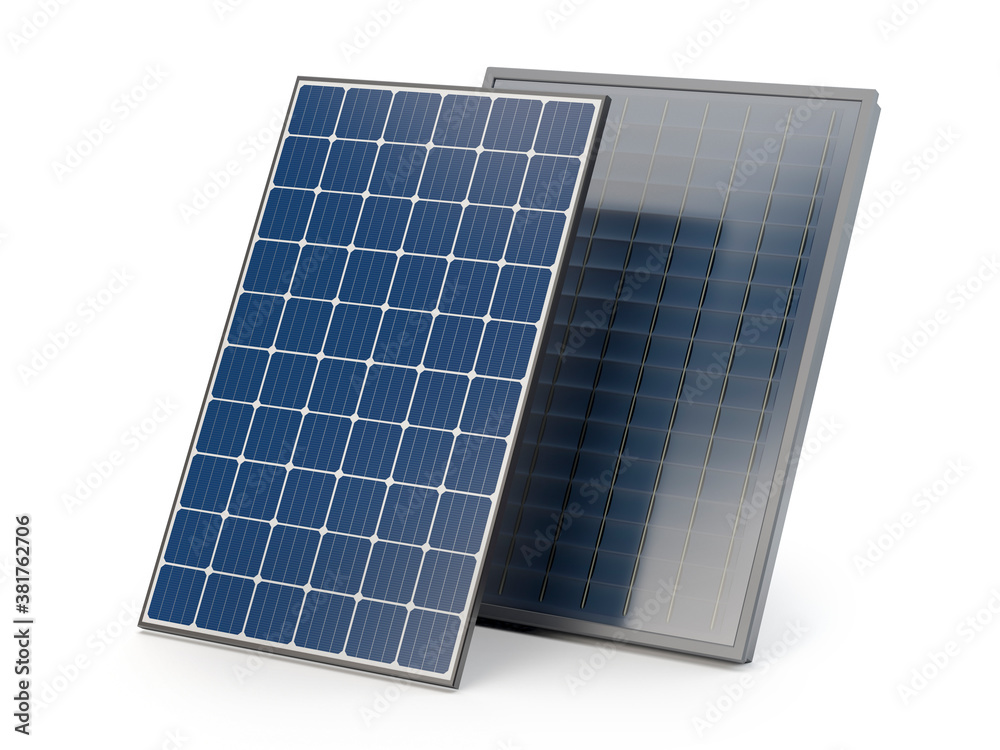In a groundbreaking development, researchers have uncovered a way to extend the lifespan of batteries used in electric aircraft by employing a decades-old biology technique. This innovative approach could revolutionize the future of electric aviation, making it more efficient and sustainable.
The Technique: Pulse and Pause
The technique, originally used in biology to study cellular processes, involves a “pulse and pause” method. This approach entails periodically pausing the charging process, allowing the battery to rest and recuperate. Researchers found that applying this method to lithium-ion batteries can significantly enhance their longevity and performance.

Brett Helms, senior staff scientist at the Molecular Foundry, with Youngmin Ko, a postdoctoral researcher, who is holding a coin cell battery used in this research. Credit: Jeremy Demarteau
Key Findings
- Increased Battery Lifespan: By incorporating the pulse and pause technique, the lifespan of lithium-ion batteries in electric aircraft can be extended by up to 30%. This prolongation is crucial for the feasibility and cost-effectiveness of electric aviation.
- Enhanced Performance: The method not only increases battery life but also improves overall performance. Batteries exhibit better charge retention and reduced degradation over time.
- Sustainable Aviation: Prolonging battery life directly contributes to the sustainability of electric aircraft, reducing the need for frequent replacements and lowering the environmental impact.
Implications for Electric Aviation
The application of this biological technique to battery technology represents a significant leap forward for electric aviation. Prolonged battery life means longer flights, reduced maintenance costs, and enhanced reliability. These improvements make electric aircraft a more viable and attractive option for commercial and private aviation sectors.
Future Prospects
Researchers are optimistic about further refining the pulse and pause method to maximize its benefits. Ongoing studies aim to better understand the underlying mechanisms and explore potential applications in other battery-dependent technologies, such as electric vehicles and renewable energy storage.
Conclusion
The innovative use of a decades-old biology technique to prolong the life of electric aircraft batteries marks a pivotal advancement in sustainable aviation. By enhancing battery longevity and performance, this approach paves the way for a more efficient and eco-friendly future in air travel. As research continues, the impact of this discovery is expected to extend beyond aviation, offering benefits to various industries reliant on battery technology.
Image by Kim Hunter from Pixabay









